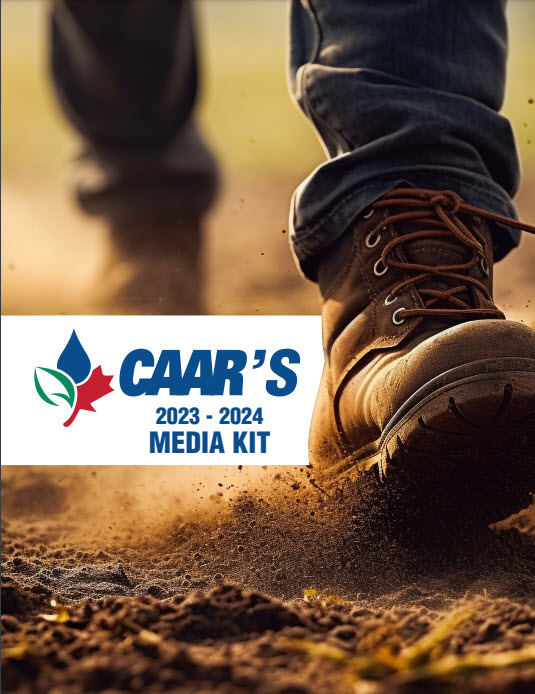CAAR is pleased to share this reader letter submitted by a concerned agvocate.
We invite you to share your feedback on this piece in the comments section below, and by responding to our special member poll.
Verification of non-GMO products shamefully ignores what they actually are.
I’ve been in the marketing end of agriculture for the past 25 years and have done a lot of work on branding, including developing logos. Logos have a great deal of power, and we in Ontario have some strong ones – especially Foodland Ontario. I’m sure the majority of us can still even sing their jingle.
There’s one logo that’s becoming more prevalent in stores though which infuriates me – that of the Non GMO Project. According to their website (http://www.nongmoproject.org), “The Non-GMO Project is a non-profit organization committed to preserving and building the non-GMO food supply, educating consumers, and providing verified non-GMO choices. We believe that everyone deserves an informed choice about whether or not to consume genetically modified organisms.”
While that description is fine for the most part, the problem for me lies in the wording ‘informed choice’. The products they label have nothing to do with providing information on genetically engineered (GE) products, but rather the opposite.
In fact, what is scary is they have verified over 35,000 products worth over $16 Billion in sales across North America. They do this by completely ignoring what a GE product actually is. A quick search of their approved products include, insanely enough, everything from water, maple syrup, coffee, honey, and organic rose petal spread to pure vitamins (iron, B12, C etc.), kitty litter, pink Himalayan rock salt, equine shampoo, toilet paper and my favourite, condoms (in the heat of the moment, do couples really care if their condoms are GE?!)
Oddly enough, as taken directly from their website, “the Non-GMO Project’s verification seal is not a “GMO free” claim, it is trustworthy, defensible, transparent, and North America’s only independent verification for products made according to best practices for GMO avoidance.” They even know that their claims aren’t necessarily true.
While I haven’t investigated the US regulations, the labeling laws in Canada are quite clear.
The Government of Canada’s Canadian General Standards Board under their Voluntary Labelling and Advertising of Foods that are and are not Products of Genetic Engineering section actually states:
“6.1.4 Claims that a single-ingredient food is not a product of genetic engineering shall not be made for a single ingredient food of which no genetically engineered strains have been offered for sale, unless accompanied by an explanatory statement, for example, like all other oranges, these oranges are not a product of genetic engineering.”
The same rule applies to multi-ingredient foods where no GE alternative exists. Therefore all of this labelling is illegal in Canada – so why is it proliferating?
That answer takes me on a tangent about the lack of science knowledge in society and the misunderstanding of what a chemical, or even DNA is. And that’s something for another column.
A better question is how we, as the farming community, address this, besides investigating possible legal action (some Canadian companies, including some farmers in Ontario have shamefully bought into this scam)? In my opinion, we need to be vocal and take every possible opportunity to talk to people about what we do on the farm, and the multitude of benefits (especially environmental) that GE crops provide. We also need to combat the messages about these falsely labelled products.
Look what happened with French’s ketchup being pulled out of Loblaws. A loud protest was launched, mainly on social media – and it was successful. Can we do the same for these products? It’s one thing to boycott the products (how many farmers buy Pink Himalayan Salt anyways?) but another thing completely to publicly call out the manufacturers and retailers. It may feel like you, as one individual isn’t making any impact, but together we can. Let’s work together to denounce these false labels.
Karen Daynard
Guelph, Ontario
Related Articles
- AMTE Launches "Be Somebody" Campaign On Sept. 12, Agriculture More Than Ever launched its coast-to-coast campaign, “Be Somebody”, aimed at encouraging those involved in agriculture to join Canada’s agvocates community and to help influence people’s rela...
- Helping Canada Grow - Information About Modern Agriculture CropLife Canada has launched the microsite Helping Canada Grow, to share key findings about how plant science innovations benefit Canada's families, economy and environment. A few facts to consider: Without pes...
- In Defence of Genetically Modified Food Maclean's has posted an article exploring the importance of taking a fair-handed look at GMOs, and the reasons why agriculture relies on them. Read more on Macleans.ca...
- "Seeds" Docudrama Playing in Winnipeg The docudrama play "Seeds", which aims to tell an even-handed summary of the Monsanto Canada Vs. Percy Schmeiser legal battle, is showing until Feb. 28 in Winnipeg, Manitoba. The Manitoba Cooperator spoke with pla...
 How to resolve AdBlock issue?
How to resolve AdBlock issue? 

Join the discussion...
You must be logged in as a CAAR member to comment.
Report
My comments